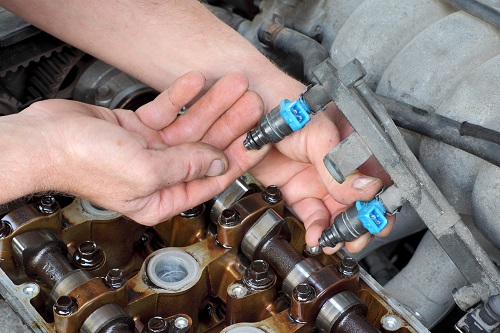Diesel engines use fuel injection technology. Small diesel cars use IDI or indirect injection, while bigger diesel engines use DI or direct injection. However, many newer diesel engines use DI to achieve improved fuel economy. While DI is more efficient, IDI ensures quieter and smoother operations. In general, the injector sprays fuel vapor to compressed, hot air to trigger combustion. Key requirements for more complete combustion are fuel-air mixing, atomization and efficient metering. Good combustion also ensures cleaner emission. Unfortunately injectors in diesel engines could be clogged by deposits. The proper working of injectors is needed to make sure that ideal spray patterns are achieved. So, it is clear that injectors become essential part of ensuring optimized fuel combustion. The spray characteristics could help to initiate more complete combustion and more fuel can be injected progressively to gain additional power. Good injection pattern is also needed to ensure smooth increase of performance. Like gasoline, diesel fuel also have different components and they boil at different temperature. Diesel fuel has wider temperature range to allow complete combustion.
When we switch off the engine, small amount of fuel may remain near or in the pintle tips. It will mix together with engine oil at high temperature. This condition could cause free radicals to form. Degradation of unburnt fuel, chemical rearrangement and auto-oxidation will cause deposits to form inside diesel engine injectors. Control specification for injector deposit is different between gasoline and diesel engines. It is a good idea to use reliable aftermarket fuel treatment to prevent the formation of injector deposits, as well as removing them. Car owners should know how injector deposits could affect the overall performance. If injectors are clean and work efficiently, they will deliver proper spray pattern that maximize the fuel-air mixture. Good atomization is also achieved to ensure efficient and rapid combustion. After a period of use, the injector annulus may start to have small amount of coke. This could happen if diesel fuel contains specific components that are added in the refinery. Coke formation happens due to the decomposition of unstable compounds. Because this situation is common, many diesel cars are designed to still work well with some amount of coke on the injector annulus.
Dirty injectors could cause various problems, such as reduced fuel economy, noisier engine and higher emissions. Fuel economy in urban areas can be reduced by 15 percent. The reduction of fuel economy can become even higher, when deposits continue to develop on injectors. So, it is important to check the degree of fouling on injectors, each time we bring our diesel cars to auto repair shops. Often, by cleaning injectors we could get noticeable improvement in performance. The car will accelerate faster and feel more responsive. We should ask the auto mechanics on how to properly reduce the accumulation of deposits. As an example, we may need to use specific brand of diesel fuel that is know to produce the least amount of injector deposits.
